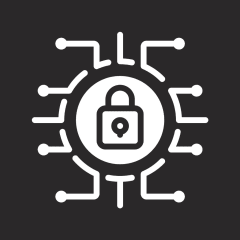Becoming a lawyer offers numerous advantages and opportunities, but it also comes with its own set of challenges and drawbacks. Here are some pros and cons of being a lawyer:
Pros
- Intellectual Challenge: Law is a complex and dynamic field that offers continuous intellectual stimulation and problem-solving opportunities. Lawyers engage in critical analysis, research, and argumentation to address legal issues and advocate for their clients' interests.
- Variety of Career Paths: Lawyers have a wide range of career options available to them, including private practice, government work, corporate law, public interest law, academia, and more. This diversity allows lawyers to pursue their interests and passions in various areas of law.
- Financial Rewards: Lawyers often have the potential to earn high salaries, particularly in prestigious law firms or specialized practice areas. Successful lawyers can command substantial fees for their services and enjoy financial stability and career advancement opportunities.
- Impact and Influence: Lawyers have the opportunity to make a positive impact on society by advocating for justice, defending individual rights, and shaping public policy. They play a crucial role in upholding the rule of law and protecting the rights and freedoms of individuals and communities.
- Continuous Learning: The legal profession offers opportunities for lifelong learning and professional development. Lawyers must stay abreast of changes in laws, regulations, and legal precedents, which requires ongoing education and training to maintain their expertise and effectiveness.
Cons
- Long Hours and Stress: The legal profession is notorious for its demanding workload and long hours, especially for lawyers in private practice or high-pressure practice areas. Lawyers often face tight deadlines, high-stakes cases, and intense pressure to deliver results, leading to stress and burnout.
- High Pressure and Responsibility: Lawyers bear significant responsibility for the outcomes of their cases and the well-being of their clients. The pressure to win cases, meet client expectations, and uphold ethical standards can be immense and may contribute to anxiety and job-related stress.
- Work-Life Balance: Achieving a healthy work-life balance can be challenging for lawyers, particularly those in high-demand practice areas. Long hours, evening and weekend work, and frequent travel can take a toll on personal relationships, health, and overall well-being.
- Job Market Competition: The legal job market can be highly competitive, especially for entry-level positions and prestigious opportunities. Aspiring lawyers may face challenges securing employment, advancing their careers, or establishing successful practices in saturated markets.
- Emotional Toll: Dealing with contentious legal disputes, sensitive client matters, and traumatic experiences can have a significant emotional toll on lawyers. The nature of legal work may expose lawyers to emotionally challenging situations, including conflicts, crises, and human suffering.
Related Careers

Incident Responder
An incident responder is a cyber security professional responsible for identifying, investigating, and mitigating security incidents within an organization.

Cryptanalyst
A cryptanalyst is a specialist in the field of cryptography who focuses on analyzing cryptographic systems and breaking codes to decipher encrypted information.

CISO
A Chief Information Security Officer (CISO) is a senior executive responsible for managing and overseeing an organization's information security program.

Security Software Developer
A security software developer is responsible for designing and developing software applications with a strong focus on security.

Cryptographer
A cryptographer specializes in the field of cryptography, which involves the study and practice of secure communication and data protection.

Security Architect
A security architect is a cybersecurity professional responsible for designing and implementing secure systems, networks, and applications to protect an organization's digital assets from cyber threats and attacks.

Penetration Tester
A penetration tester evaluates the security of computer systems, networks, and applications by simulating real-world attacks.

Information Security Director
An information security director is responsible for leading and overseeing the information security function within an organization.

Digital Forensics Analyst
Digital forensics analysts investigate and analyze digital evidence to uncover information related to cybercrime, data breaches, or other digital incidents.

Red Teamer
A red teamer specializes in conducting adversarial simulations and assessments of an organization's security measures, with the goal of identifying vulnerabilities and weaknesses.

Blue Teamer
Blue teamers are cybersecurity professionals who specialize in defensive security measures and strategies.

SOC Manager
A Security Operations Center (SOC) manager is responsible for overseeing the day-to-day operations and strategic direction of a SOC.

Security Engineer
A security engineer is responsible for safeguarding an organization's information technology infrastructure and data from potential threats, vulnerabilities, and cyberattacks.

Ethical Hacker
An ethical hacker is a cybersecurity professional who is hired by an organization to identify and fix vulnerabilities in their computer systems, networks, and applications.

Information Security Analyst
An information security analyst is responsible for safeguarding an organization's computer systems and networks against cyber threats and unauthorized access.

Cybercrime Investigator
A cybercrime investigator is responsible for investigating and combating cybercrimes.

Information Security Manager
An information security manager is responsible for overseeing and managing the information security program within an organization.

IT Security Consultant
An IT security consultant provides expert advice and guidance on information technology security matters to organizations.

